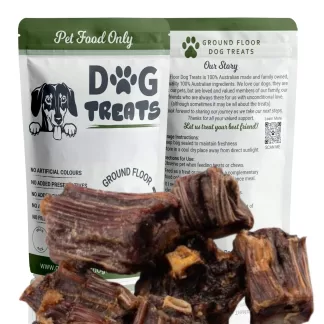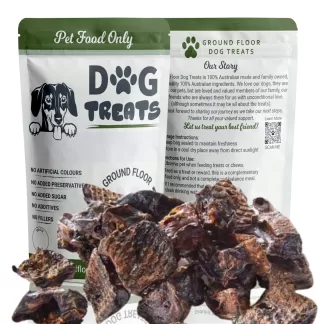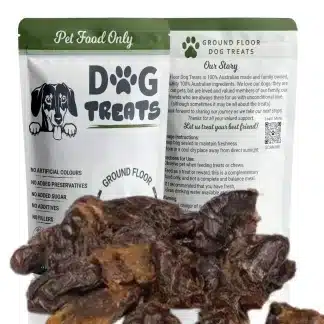SKU
PB-MINI
Category Baked Dog Treats
Tags Dog treats, Mini Dog Treats, Peanut Butter Dog Treats, small dog treats
$6.50 – $35.00
Peanut Butter Mini Dog Biscuits are a great quick snack or reward style of dog treat. Made from 100% Australian ingredients. These small bite sized biscuits are ideal for small to medium dogs.
Shipping Details – Free Standard Delivery on all orders over $75
Full Shipping details HERE
These are far from plain, our mini Peanut Butter Mini Dog Biscuits are a great quick snack or reward style of dog treat. Made from 100% Australian ingredients. These small bite sized biscuits are ideal for small to medium dogs, however dogs of all sizes will enjoy them as a treat.
We have found most dogs will enjoy a peanut butter biscuit from time to time, and our range includes some great flavours including with Charcoal, with beetroot and will basil, along with our most popular standard peanut butter biscuit.
These Mini dog biscuits are lightly baked slowly over time to ensure a crunchie delicious snack. And still our most popular doggy treat.
Don’t take our word for it – Can Dogs Eat It
Not recommended for dogs with allergies, contains allergens – peanuts, honey, grain, gluten, and coconut oil
Check out our full range of lightly baked dog treats here
| Pack Size | 20pk, 50pk, 150pk |
|---|---|
| Flavour | Plain, With Basil, With Charcoal, With Beetroot, Mixed |
Additional ingredients for the listed items is either activated charcoal powder, beetroot powder, or basil depending on the selection
Each Peanut Butter Mini Dog Biscuit is hand made and individually cut so variations in size and weight may occur.
Average biscuit weight is 5g, and average length is 4cm
Source: https://www.candogseatit.com/human-food/peanut-butter
Source: https://www.candogseatit.com/human-food/flour
Source: https://www.candogseatit.com/fruit-veg/coconut
Source: https://www.candogseatit.com/human-food/charcoal-powder
Source: https://www.candogseatit.com/herbs-spices/basil
Beetroots must be given to dogs in moderation to avoid stomach problems.
Source: https://www.candogseatit.com/fruit-veg/beets
Source: https://www.candogseatit.com/human-food/honey
Only logged in customers who have purchased this product may leave a review.





© Ground Floor Dog Treats | Ground Floor Group PTY LTD | Designed By GroundFloor Creative Marketing 2024 | ABN: 37 677 155 547

Reviews
There are no reviews yet.